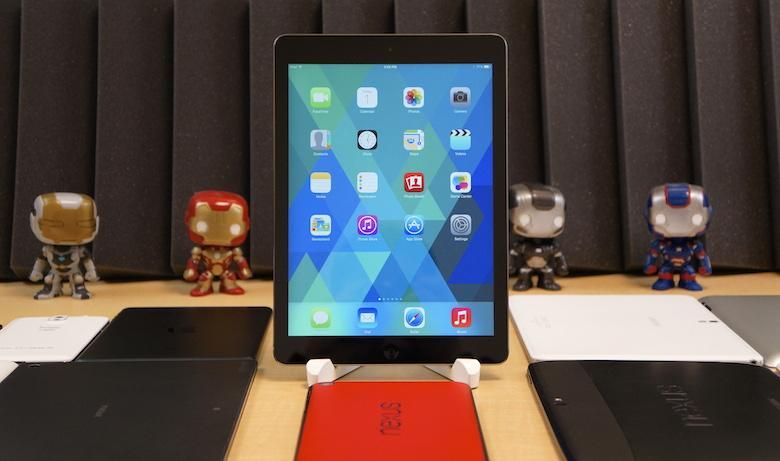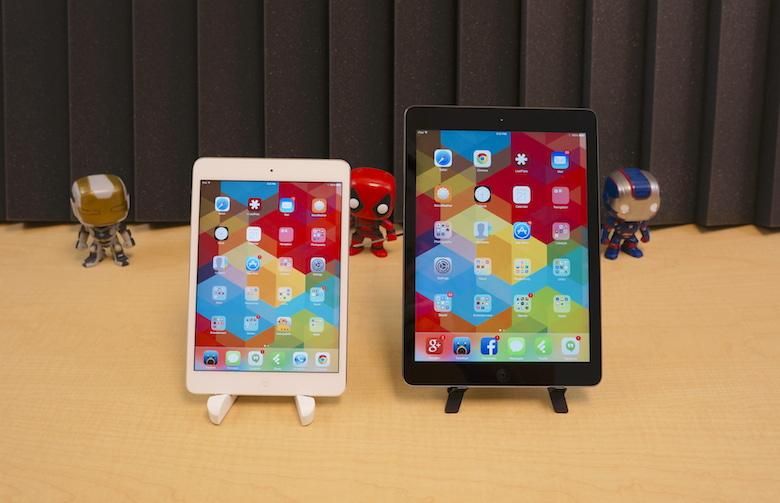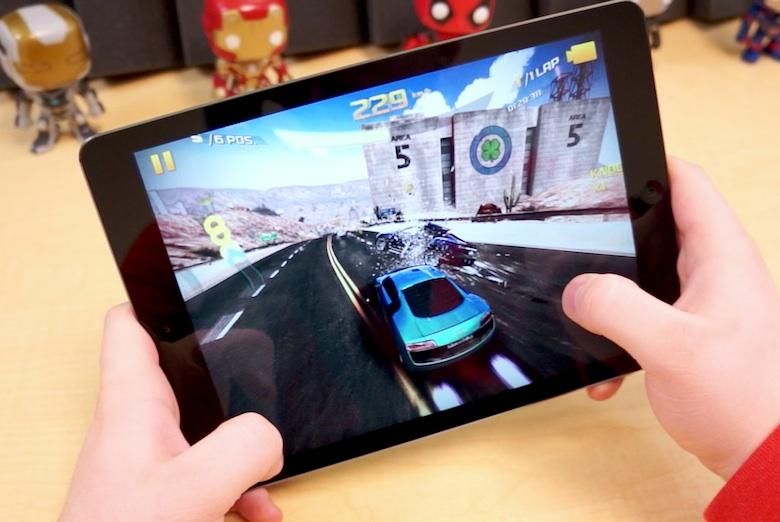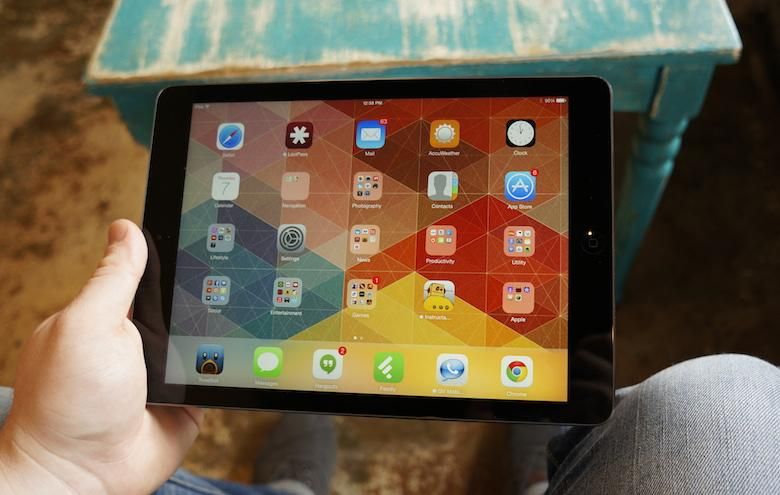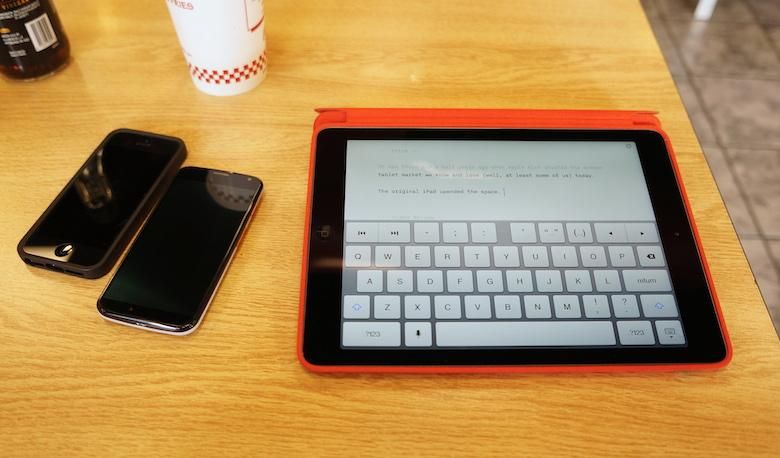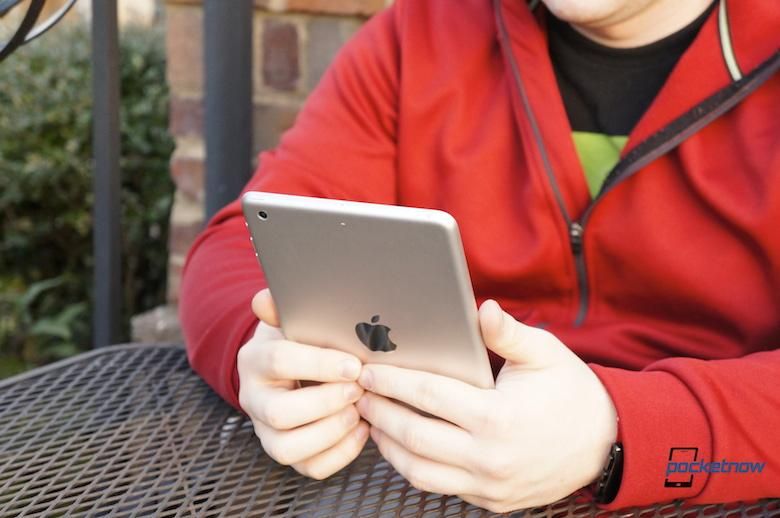Most of us in this industry get asked a lot of questions from people in the market to buy new mobile products. “Which smartphone is the best current deal?” “Should I get this phone or that one?” “Which is the best tablet to buy?”
But of all the questions I’ve been asked in my four years of service to the mobile tech media, there is one question that is inherently more difficult to answer than others: “Should I buy a small or full-sized tablet?”
The question is difficult to answer to begin with because … who actually needs a tablet? Should anyone buy a tablet to begin with?
Of course, some will always answer that question with “Yes,” followed by arms flailing in the air and a retort, “That’s a stupid question.”
But is it? I’ve been carrying and using tablets since before Apple announced and released the first-generation iPad. In fact, I had three or four even before 2010. That said, every time – and I do mean every time – I’ve owned a tablet, the same thing has happened. I use it for the first few months, sometimes only a few weeks, then my usage begins to taper … drastically. It’s only exasperated by the ever-increasing functionality of smartphones and my growing need to be more and more “on the go.”
So before you ask yourself which kind of tablet you want to buy, make sure you really want or need a tablet first.
The other reason the question is so difficult to answer is: most tablets all do the exact same thing, regardless of size. Just like your smartphone, a tablet will run most – if not all – the same apps and games, operate almost exactly the same, and only offer a few, true advantages.
The first being, of course, display real estate. This is the primary reason tablets exist. Smartphones are helpful tools which are easily thrown in a pocket for storage and carrying. But in that same vein, it makes them impractical or uncomfortable for various activities. I once watched an entire movie on a 4.7-inch smartphone during a flight home from Las Vegas. It did its job, but it was far from the best movie watching experiences I’ve ever had.
The second advantage of tablets is battery life. The larger chassis allows for a ton of additional space for cramming more milliampere-hours. Smartphones typically last a day or so on a charge, or sometimes far less through heavy usage. Tablets, on the other hand, may last two to five days on a charge through similar usage.
Judging by those advantages, the answer to the question may seem straightforward and simple. If additional real estate and battery life help define and differentiate tablets, would not larger tablets be even better at doing their jobs? They obviously have larger displays, but also typically have larger batteries tucked away inside.
Not always. Portability is also a major factor. After all, if you’re not worried about portability, why wouldn’t you just carry a laptop everywhere you go? Full-sized tablets are naturally bigger, heavier, and, likewise, less portable.
So which should you buy? A full-sized tablet or one of its smaller counterparts?
Currently, I have both the iPad Air and iPad mini from Apple and the Nexus 7 and Nexus 10 from Google. Oh, I also have the Galaxy Note 8.0 and Note 10.1 2014 Edition from Samsung. Every time I immediately swooned over the larger sibling and later gravitated towards the smaller model. Every time.
I drooled over the thinner, narrower, lighter iPad Air during Apple’s press event. Yet, while owning both, I almost always reach for the iPad mini with Retina display now. The Nexus 10 was amazing when I first got it; I rarely ever put it down. Yet now I use the Nexus 7 and the Nexus 10 is only charged to shoot new videos every few months.
Does this mean you should forget about those full-sized tablets and focus your research on small tablets, too?
Not necessarily. It depends entirely on your style of usage. The only time I reach for larger tablets is for multimedia playback – only for watching movies, really. Gaming, Web browsing, messaging, calendars, and practically everything else I use a tablet for is more comfortable with a 7- to 8-inch tablet. I toss it in my bag and barely notice it’s there. And, most importantly, they’re always cheaper than their larger compatriots. The Nexus 7 starting price is $170 lower than the Nexus 10. The iPad mini with Retina display is $100 cheaper than the iPad Air.
The only reason I recommend larger tablets for people these days is if they’re going to be watching a lot of television and movies on their tablet or on-screen typing, which most seem to hate anyway. I’m comfortable with typing thousands of words per day from the iPad Air’s on-screen keyboard. In fact, I wrote the entire iPad Air review using the on-screen keyboard and iA Writer. I can type effectively with the iPad mini’s on-screen keyboard, but not nearly as comfortably.
Unless you plan to pair a Bluetooth keyboard or absolutely need the additional real estate or battery life, my initial recommendation will almost always be a smaller tablet. They’re cheaper, more affordable, offer significantly more display real estate than larger tablets, and nowadays, they’re just as powerful.
Full-sized tablets are great, too. But I’ve found over the last four years that I’m far more likely to bring a small tablet with me everywhere I go. I can throw it in a coat pocket or carry it around without too much trouble. Full-sized tablets, in my use at least, are more fitting for a tablet you leave on the coffee table in the living room – a couch tablet.

